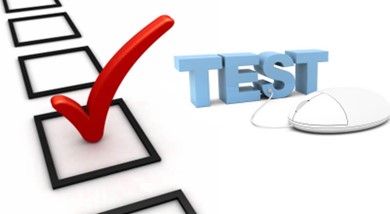Examinations during a student’s academic career serve as benchmarks that promote gradual progress. Academic exams help students progress. We may be satisfied in our comfort zone, but we only grow by facing hurdles. Exams help us reach our goals by appropriately assessing our skills.
The results of examinations give us confidence that we have gained specific skills. Thus, we climb life’s ladder and prepare for the next assignment. Examinations speed up learning by setting a deadline for mastery. Thus, those who are behind try to catch up before the exam.
We know that life is full of challenges and that we must persevere. Exams mimic grownup challenges. Exams simulate the challenges that one is expected to confront as an adult. So students grow to be more resilient after enduring many setbacks during school examinations. In addition, students gain a deeper awareness of their abilities through examinations. The exam results give them with the information they need to choose the appropriate majors for postsecondary study.

In this post, we provide you with five helpful hints and resources that you can use in preparation for the exam.
- Use flowcharts.
Visual aids assist study. Start a topic by writing down what you know and identifying your gaps. As the test approaches, create one-page revision visuals. This succinct approach will help you remember test material.

- Mock Exams
Exam preparation is best done with past exams. This familiarizes you with the question format and, if timed, helps you allocate enough time to each segment. Mock tests let you assess your performance. This will assist you understand the exam’s requirements.

- Clarify your responses to others
Parents, younger siblings and peers do not have to be irritating around exam times. Use them to your advantage. Explain to them the answer to their questions. This will help you organize your thoughts and identify any areas where you need to improve.

- Take regular breaks
Learning everything might be detrimental. Running around the clock is not recommended for marathon preparation. Studies show that regular pauses improve long-term memory. Everyone is different, so make your own study regimen. If you study best in the morning, start early before lunch. If you’re more productive at night, take a longer break early in the day to relax by evening.

- Drink lot of water
Finally, brain function depends on water. Stay hydrated throughout study sessions and exams.

Works Cited
Writer, S. (2022) Exam preparation: Ten study tips, Top Universities. Topu. Available at: https://www.topuniversities.com/student-info/health-and-support/exam-preparation-ten-study-tips (Accessed: February 9, 2023).
English, C. (n.d.). Cambridge English. Tips to help you get your students ready for exam day | Cambridge English. Retrieved February 9, 2023, from https://www.cambridgeenglish.org/blog/five-tips-to-help-you-get-your-students-ready-for-exam-day/
Ted Dorsey, M. A. (2023, January 29). How to prepare for an exam (with pictures). Wiki How. Retrieved February 9, 2023, from https://www.wikihow.com/Prepare-for-an-Exam



 www.jksz.com 网站备案信息 沪ICP备15050086号-1
www.jksz.com 网站备案信息 沪ICP备15050086号-1 沪公网安备 31011202001855号
沪公网安备 31011202001855号